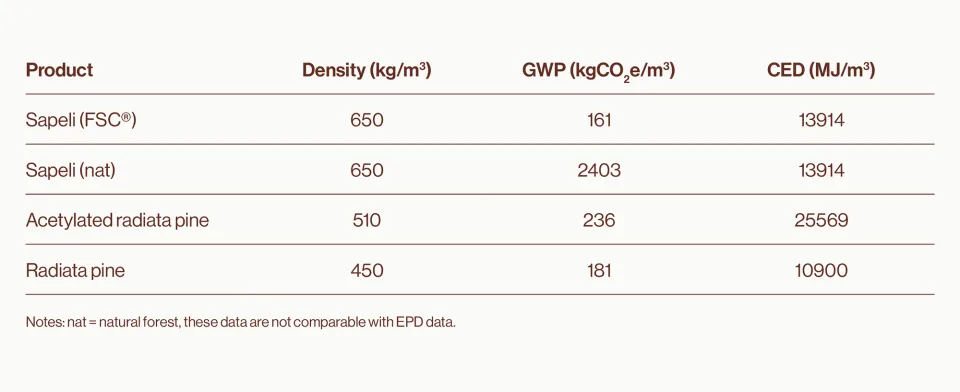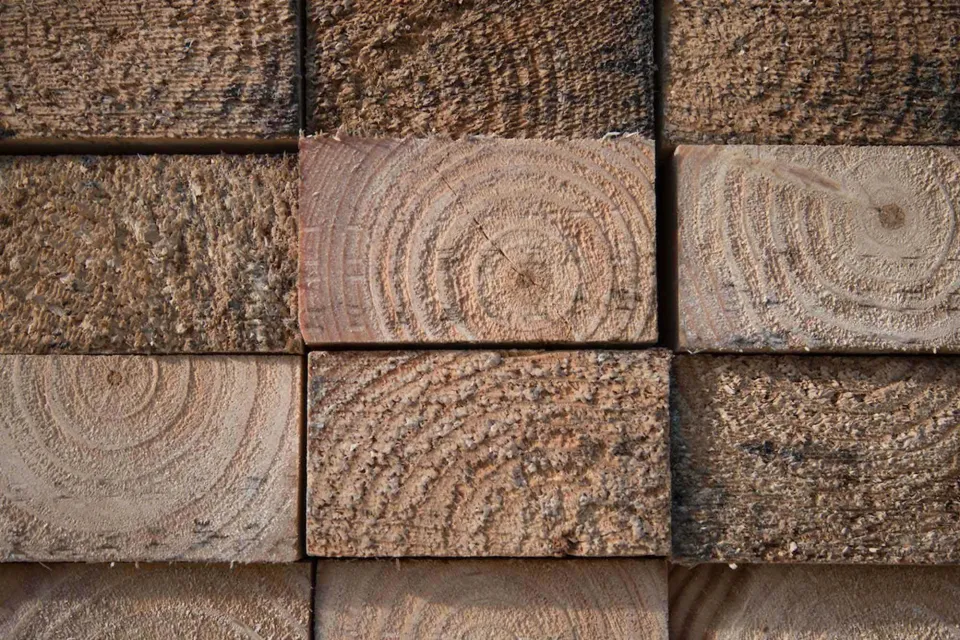-
About
-
Products
- By Timber Product
- Cladding
- Decking
- Joinery
- Screening
- Panelling
- View all
- By Application
- Exterior Cladding / Siding
- Exterior Rain Screen
- Exterior Roofing
- Interior Walls & Ceilings
- Soffits
- Screening, Fins & Battens
- Windows, Doors & Joinery
- Posts & Beams
- Accessories + Samples
- Coatings
- Fixings
- Samples
-
Shop
- Samples
- Timber Samples
- Architectural Sample Box
- View all
- Accessories
- Coatings
- Fixings
- View all
-
Resources
- By Resource Type
- Technical Data Sheets
- Guides & Manuals
- Technical Articles
- Profile Drawings
- View all
- How To
- How To Specify
- How To Install
- How To Maintain
- Projects
- Contact
Why Don’t Tropical Hardwoods Have Environmental Product Declarations?
Without current EPDs to meet building code legislations, the use of tropical timbers is becoming increasingly difficult.
It is difficult to find Environmental Product Declarations (EPD) for tropical timber species. A recent study by JCH Industrial Ecology Limited found no available EPDs for tropical hardwood species and very little publicly available Life Cycle Analysis (LCA) data for any of these species.
A 2020 report by Rupert Oliver of Forest Intelligence Ltd. for IDH-Sustainable Trade Initiative backed this finding with the following statements:
‘The reality is that calculating an accurate carbon footprint for certified timber is near impossible—there simply isn’t enough data. Certification frameworks don’t currently collect the data needed to facilitate carbon accounting, and there is a great deal of uncertainty involved in scaling existing one-off carbon assessments of timber operations to a global scale.’
The most recent IDEMAT dataset by Delft University of Technology contains information regarding different tropical timbers, but the reliability of this data is uncertain.
This graph shows the GWP-GHG and embodied energy (CED) data as reported in the 2023 IDEMAT database.
What does this mean for construction, in a world where LCAs and embodied carbon will be measured and accounted for? As more and more building codes requires these measurements to be declared, with EPD reports being the most commonly accepted form of data.
This will make the use of tropical hardwoods rife with uncertainty and points to sustainably sourced products as a safer choice for specifiers. Abodo’s current EPD report is shared with all users and the public online, to ensure accurate and up-to-date data is readily available.
For further reading about the impact of tropical timbers, please see these publications and websites:
- Useful links related to the marketing of verified sustainable tropical timber can be accessed at the European Sustainable Tropical Timber Coalition.
- EPDs of tropical hardwood products (decking, bulkheads) can be downloaded from Centrum Hout but there is no EPD for sawn wood products.
- An impact calculator has been developed by FSC Nederland for determining the environmental costs of different timber species, but the method of calculation is not explained.
- An EPD review for solid and modified wood products for window and door applications is available here.
- The African Journal of Environmental Science and Technology provides an environmental assessment of tropical African mahogany (Khaya).


